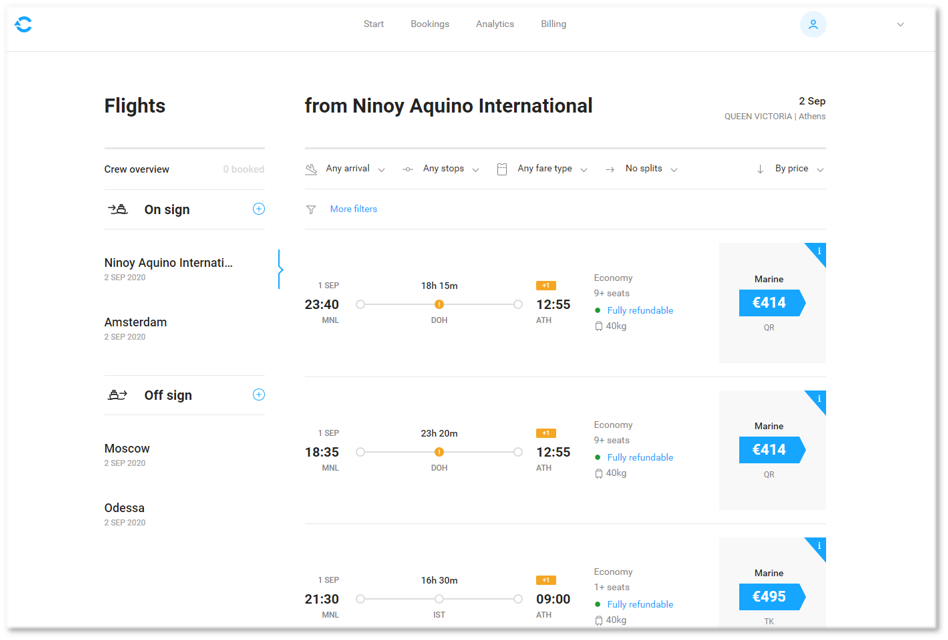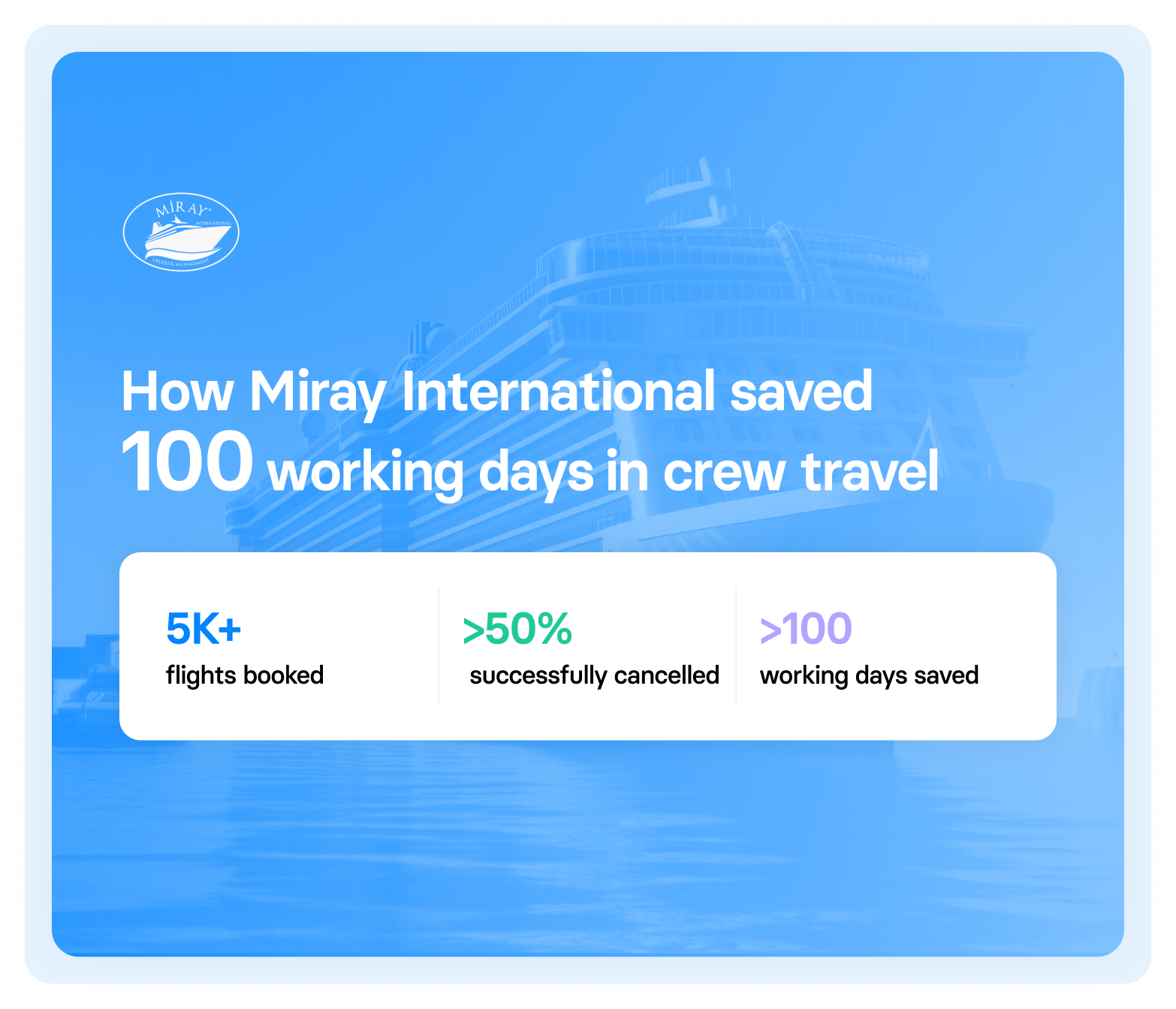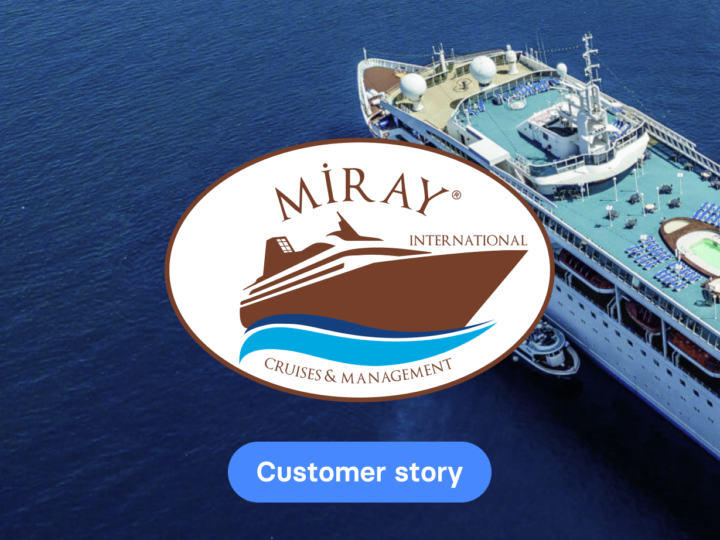There has been news about the humanitarian crisis of seafarers living stuck at sea during the past months due to COVID-19 travel restrictions. In the meantime, crew managers ashore face the most challenging moments in their careers, thinking outside the box to move their crew around.
We talked to Ivan Pulkachev, who told us how he, as a crew manager, has been experiencing this crisis and the steps his team has taken to keep crew travel costs as low as possible and move the seafarers on time.
About Ivan
With over 10 years of experience in the maritime industry, Ivan Pulkachev is a Crew Manager & Head of Recruitment at Crewplanet, an IT and data-oriented manning agency based in Latvia and the Netherlands.
Ivan has been a seafarer himself. After a few years at sea, he wanted a more dynamic challenge and decided to switch from ship to shore. During his Maritime Business Administration education, he started his career managing crew operations and hasn’t left it ever since.
“I was right. It is a dynamic industry; every day is not like the day before”, said Ivan in an interview with C Teleport. “Things change really fast. We have to always be looking for the best possible solution to the problems that arise 24/7/365”.
The Challenges of Crew Travel
It is no news that on top of the already complex job of a crew manager, the COVID-19 pandemic has added even more dynamism to the job. With borders being closed, restrictions changing every day and flight prices skyrocketing, new tactics and solutions need to be performed by crew managers and their teams.
Ivan shared with us the main challenges that his team has been facing since March 2020 and how it has affected their operations.
Planning Crew Changes
A crew manager is always looking to create a positive environment for the seafarers, know what they feel, what they want, and their challenges. To produce such experience, Ivan thinks that a good crew manager is always thinking in advance and has a backup for any future problem.
“During COVID-19, this prediction is not as easy as before. There are too many obstacles.” said Ivan, “Previously, we could make the whole crew management plan 6-12 months in advance, and nowadays, it is harder. We can only plan for the few upcoming months, and even then, the predictions could go wrong at any time”.
As some countries start seeing the second wave of COVID-19 happening, there is a rise in flight changes and cancellations again. According to Ivan, before the pandemic, it was already a complex task to bring the crew from their hometowns to their vessels. Few suitable options were available since then, and currently, very often, you only have one option, and that option gets cancelled. “There are not many things you can do with that”, Ivan mentioned.
Nowadays, when changes and cancellations happen, crew managers have to reschedule all the planning with alternative options that might result in less efficiency, less convenience and more expenses.
This last point took our conversation with Ivan to the next challenge in crew management.
Crew Travel Costs
Budgets are limited nowadays as the whole world faces an economic crisis, and it is no different for the maritime industry.
Flights are becoming more expensive; with the increase of demand for specific routes and the low availability of options, Ivan pointed out that some flights are being overbooked weeks before departure.
“The prices could be okay if you do crew changes by travelling through certain countries,” said Ivan when we asked him about the increase in expenses due to COVID-19. “With borders being closed, sometimes you are forced to perform crew changes at other less cost-efficient locations. For example, you are changing your crew in Amsterdam for many years as the most cost-efficient port, but now you have to change it in Guangzhou because of external obstacles. Obviously, those flights would be more expensive. Additionally, you might face extra costs for a visa, taxi, trains, etc.”
When a crew change costs up to 150% more, sometimes the only possible solution for some shipping companies is to extend the seafarer’s contract, which is also not the best alternative for the seafarers’ well-being.
Seafarers’ Struggles
The whole situation is even worse for the seafarer; it’s not convenient for them or their families. “The seafarers have a certain balance in their lives. For example, they are two months on, two months off. But now, they are forced to stay longer due to external factors,” Ivan said when asked about the seafarers. He also mentioned that those who get to travel have to go through long journeys. “Previously, we were able to complete a whole crew change in one day, now we have to spend 2-3 days”.
Ivan considers that communication with the crew is critical during these times. “We have to communicate clearly to them why schedules have changed. They understand the challenges, and they understand that we are doing our best. They see our effort in finding optimal solutions”.
When talking about seafarers signing on, there seem to be fewer job options available as many projects are cancelled due to the pandemic.
Managing Crew Travel in a Crisis
“As crew managers, we already have the experience and market knowledge to do everything the most efficient way,” said Ivan when we asked him about how his team has managed crew changes lately. “But with the current situation, there’s no magic formula”.
Ivan and his team had to get out of their comfort zones and get creative to perform their crew changes in the current state of the world. From his experience during this crisis, he pointed out four main things that have helped him.
Route Research
Before any decision is taken, Ivan and his team do exhaustive research to find the best routes. They have developed procedures that help them keep the cost low and prepare their crew communication plan. “We search for reliable sources online, and from there, we verify it with governments and airline companies. Every day, there’s new information, so that makes it a bit difficult”.
Ivan and his team try to predict how the travel restrictions will happen depending on the COVID-19 cases trends in the countries they are looking for. Another source that has helped them make predictions is the country’s airport departure page, “If we saw that flights were taking place during the previous days, we estimated that the same flights might take place today or tomorrow. Though the information was not always 100% correct, sometimes it was the only indicator that gave us some information”.
Proxy countries
Back when the first wave of COVID-19 was still going strong in Europe, Ivan and his team started using proxy countries when there were no direct connections for their crew changes. “Checking the airport’s departures page regularly helped us spot the proxy countries. Every day restrictions might be different, some countries are entering the red zone, and others are leaving it, so back then, the countries we used were Belarus and Sweden because they had fewer restrictions”.
Most of the crew managed by Ivan and his team are from the Baltic States, Russia and Ukraine, so back in the day, Belarus was a suitable option for them as the border restrictions between these countries were relaxed, and there were frequent flights to major airline hubs. Given the current situation in Belarus, Ivan does not recommend making connections in that country at the moment.
Firsthand flight information
In pandemic times, having access to all the information available is critical. Ivan mentioned that having C Teleport as their flight booking platform has helped them take actions faster and be more efficient. “When you have information next to you at all times, you can make better decisions. C Teleport shows you all the flights available by the minute with transparent pricing”. Combining the flight information that he gets from the platform with his research, Ivan can plan and predict his steps for the crew changes.

“When you book through a travel agent, you only receive a few options as the information is filtered from their side, and with C Teleport, you can see everything yourself”, Ivan added.
Timely Communication
Ivan’s main advice is to communicate with the crew regarding the challenges and the solutions the company is working on. “Seafarers talk between each other; they know stories of other companies where seafarers are left way too long at sea.” Ivan commented, “This is why it’s important to communicate with them and let them know everything that we’re doing to move them out of the ship. It helps create trust and build a long-lasting connection.”
Ivan also recommends communicating with other colleagues inside the industry, “Keep in touch with other crewing or ship management companies and seafarers to exchange information on possible transfer options or to combine the efforts in booking a charter flight and sharing costs.” As a tight-knit industry, maritime workers are willing to help each other, “In fact, seafarers know a lot. As a result of communicating with each other, they know who is getting embarked or discharged, where and how. They share the challenges on the way and the steps they took to solve them”.
The Future of Crew Changes
For Crewplanet, a manning agency that had already optimized its processes even before COVID-19, the most significant challenges are external. Ivan believes that not many things will change for them after the pandemic.
In case of a second wave, Ivan and his team already have a good plan in mind, “The first lock-down was harder because nobody knew what to do, and institutions were not communicating properly with each other, there was a lot of misinformation.” He’s confident that they will find a way to keep making crew changes. He affirms that seafarers are trusting them to be replaced when they need to be replaced.
The journey is not over yet for crew managers and seafarers; this uncertainty seems to be here to stay. It is essential now more than ever to adapt fast and look for more than one way to solve the daily challenges. The way things have “always been done” might not work anymore. As Ivan’s story shows us, crew managers and shipping companies should re-shape their crew travel procedures to continue their operations most optimally.

